Chapter 3
Tobacco Products Imposition
A. Imposition
The tobacco products tax is imposed upon every person engaged within South Carolina in the business of selling tobacco products as a distributor. A distributor is:
(1) any person engaged in the business of selling tobacco products in South Carolina who brings or causes to be brought into South Carolina from without South Carolina any tobacco products for sale;
(2) any person who makes, manufacturers, or fabricates tobacco products in South Carolina for sale in South Carolina;4 and
(3) any person engaged in the business of selling tobacco products outside of South Carolina who ships or transports tobacco products to retailers in South Carolina to be sold by such retailers in South Carolina.
Essentially, the tax is imposed on the person first receiving the untaxed tobacco products for sale, distribution or other disposition in South Carolina and upon any person within South Carolina importing, receiving or acquiring tobacco products from outside of South Carolina or from any source whatsoever for use or consumption.
Once the tobacco products tax has been paid with respect to a tobacco product package, no additional tobacco products tax is due with respect to that package regardless of the number of times the package is resold in South Carolina.
The tax applies whether the tobacco products are sold or otherwise disposed of in South Carolina, unless the sale or disposition is otherwise exempt under the law. In other words, if the person liable for the tax is unable to account for any tobacco products, such tobacco products are subject to the tax.
B. Definition of Tobacco Products
The term “tobacco products” is defined to mean “cigars, cheroots, stogies, periques, granulated, plug cut, crimp cut, ready rubbed, and other smoking tobacco, snuff, snuff flour, cavendish, plug and twist tobacco, fine-cut, and other chewing tobacco, shorts, refuse scraps, clippings, cuttings and sweepings of tobacco, and other kinds and forms of tobacco, prepared in a manner to be suitable for chewing or smoking in a pipe or otherwise, or both for chewing or smoking, but does not include cigarettes.”
C. Tax Rate
The tax rate on tobacco products is 5% of the manufacturer’s price. The manufacturer’s price is the established price at which the manufacturer sells to a wholesaler.
It has been the Department’s longstanding policy that the “established price” is recognized and accepted sum of money asked for a tobacco product which a manufacturer sells to a wholesaler. The “established price” also depends on the facts and circumstances, such as in the case of the promotions and incentives discussed below.
The following provides guidance with respect to determining the “established price” for various promotions and incentives:
Promotional Packaging - A product packaged for the consumer as part of a “buy one get one free” promotion by the manufacturer is a packaged unit with an established price that is distinct and separate from the established price for the same product sold individually. Therefore, the established price is the recognized and accepted sum of money asked by the manufacturer for each packaged unit during the promotion.
Products Received Free of Charge - For the incentive program in which the manufacturer will offer a wholesaler, during a specified time period, the opportunity to receive one case of a product free of charge if he purchases one or more cases of the same product, the total price that the wholesaler pays is the “established price” for the all the cases received under the promotion.
For example, if the wholesaler purchases 10 cases for $200 and receives 1 case free, the established price upon which the tax is calculated for all 11 cases is $200. A transaction must be viewed based upon its substance rather than its form. As such, the taxpayer in the example has purchased 11 cases for $200.
Promotional Allowance - For the incentive program in which a manufacturer offers for a limited time a promotion that merely reduces the price of the product, the established price is the recognized and accepted sum of money asked by the manufacturer for the product during the promotion.
For example, the product may sell for $175 per case; however, the manufacturer is offering the product during a specified time period for $160 per case with the invoice showing a unit price of $175 and a promotional allowance of $15. As a result of the promotion, the established price is $160.
Finally, the established price is the amount charged by the manufacturer to the wholesaler before any cash discounts for early payment are allowed and taken.
D. Examples of Persons Liable for the Tobacco Products Tax
The following are examples of persons who are liable for the tobacco products tax:
(1) Wholesalers first receiving untaxed tobacco products from outside of South Carolina for sale or distribution in South Carolina.
Most persons liable for the tobacco products tax will fall within this category.
(2) Retailers first receiving untaxed tobacco products from outside of South Carolina for sale or distribution in South Carolina.
While most retailers will not be liable for the tobacco products tax since they are purchasing taxed tobacco products from the wholesalers listed above, some retailers specializing in selling cigarettes and tobacco products will fall into this category. These specialty tobacco shops may directly import or receive untaxed tobacco products from outside of South Carolina.
(3) Manufacturer who employ sales representatives who bring untaxed tobacco products into South Carolina for sale by retailers in South Carolina. For example, manufacturers may send “car stock” to their sales representative in South Carolina for restocking or promotional purposes.
(4) Operators of fairs, circuses and carnivals, or vendors at such locations, who bring untaxed tobacco products into South Carolina to sell or give-away as prizes.
(5) Individuals who bring untaxed tobacco products into South Carolina for their own use or consumption.
These individuals are liable for the tax as a person importing, receiving or acquiring tobacco products from outside South Carolina for use of consumption.
E. Examples of Persons Not Liable for the Tobacco Products Tax
The following are examples of persons who are not liable for the tobacco products tax:
(1) Retailer only receiving taxed tobacco products from South Carolina wholesalers.
Since the South Carolina wholesaler was the first person to receive the untaxed tobacco products into South Carolina, the wholesaler, not the retailer, is liable for the tax.
(2) Individuals only purchasing taxed tobacco products from South Carolina retailers.
Since either a South Carolina wholesaler or retailer was the first person to receive the untaxed tobacco products into South Carolina, the wholesaler or retailer, not the individual consumer, is liable for the tax.
(3) Operators of fairs, circuses and carnivals, or vendors at such locations, who only purchase taxed tobacco products from South Carolina wholesalers or retailers.
Since either a South Carolina wholesaler or retailer was the first person to receive the untaxed tobacco products into South Carolina, the wholesaler or retailer is liable for the tax.


